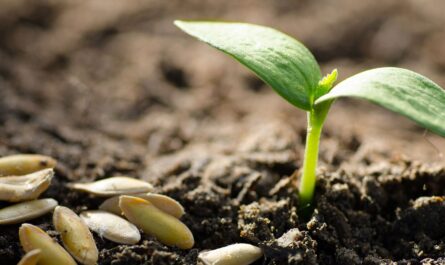Introduction
The modern agriculture industry relies heavily on the use of agrochemicals such as fertilizers, pesticides, and other crop protection chemicals to maintain high yields. These products have played a key role in boosting food production globally to meet the growing demands of a rising population. However, their usage also raises environmental and health concerns that need to be carefully managed. This article examines the importance of agrochemicals and some of the issues surrounding their application.
Fertilizers power agricultural productivity
Fertilizers are crucial agrochemicals that replenish nutrients in soil and maximize crop yields. The Green Revolution of the 1960s saw a sharp rise in fertilizer usage which transformed agriculture across the developing world. Today, fertilizers account for more than 50% of the total agrochemicals market worldwide. Nitrogen, phosphate and potassium-based fertilizers restore nitrogen, phosphorus and potassium levels depleted from soils after each harvest. This allows farmers to sustain intensive cultivation practices and harvest multiple crops in a year. Without fertilizer application, globe’s food output would be only half of current production levels according to studies. While fertilizers have received criticism for alleged dangers, modern farming is simply not feasible at scale without their soil-nourishing functions.
Pest management safeguards crop health
Pests pose a huge threat to crop yields if left unchecked. Every year nearly 40% of overall food production is lost due to damage from weeds, insects, rodents, fungi and other pathogens. To protect crops, farmers largely rely on different classes of pesticides which include herbicides, insecticides, fungicides, nematicides and others. These agrochemicals help control a wide array of insects, diseases, weeds and others that ravage crop farms. While pesticides are indispensable for preventing agricultural damages, their misuse and over-application has led to negative impacts in some cases which needs addressing. Integrated Pest Management (IPM) offers a smarter approach by combining chemical and alternative pest control methods.
Impact of agrochemicals on environment
Agricultural chemicals enrich soils but their excessive or irresponsible application also poses risks to the environment. Water pollution from chemical run-off is a major issue impacting aquatic life and potentially human health. Fertilizer run-off feeds algae blooms in rivers and seas reducing oxygen levels. Pesticide residues have been detected in water bodies and soil ecosystems disrupting delicate balances. Nitrous oxide and other emissions from fertilizers contribute to global warming as well. While agrochemical companies work to develop less hazardous formulations, more needs to be done to minimize pollution. Sustainable farming with prescribed chemical dosages and IPM techniques can help get the most out of agrochemicals while reducing environmental fallouts.
Human health implications
Long-term exposure to pesticides may also bear consequences for agricultural workers and communities surrounding farmlands according to various studies. Organophosphate insecticides are neurotoxins that have been linked to neurological impairments if safety protocols are neglected during spraying. Herbicides like glyphosate found in Roundup are under review for potential cancer risks. While industry-funded research contests these findings as inconclusive, reducing agrochemical dependence through alternatives may help address public health anxieties. At the same, better regulation and enforcing protective equipment for spray workers is important to reduce direct contact dangers. Raising awareness regarding proper chemical handling techniques has a role here.
Advancing agricultural sustainability
As food insecurity persists, demand for agricultural production will keep rising globally. Meeting this challenge in an environmentally sustainable way requires both incremental improvements in agrochemical design and deeper agricultural transformations. Companies are exploring novel biopesticide formulations based on natural compounds, engineering pest-resistant crop hybrids and encouraging nutrient-efficient farming through soil health management. At the same time, integrated crop-livestock methods, agroforestry practices and shifts to more diverse, locally adapted cropping systems can help lower agrochemical dependency in the long run. Public support for such ecologically intensive approaches through financial incentives will aid their wider adoption. Ultimately, balancing agrochemical benefits with responsible risk control through science, regulation and alternative measures can secure global food security sustainably in the coming decades.
Conclusion
To conclude, agrochemicals such as fertilizers and pesticides are indispensable technologies powering higher agricultural productivity worldwide. However, their large-scale and often injudicious use also carries environmental and public health concerns requiring comprehensive solutions. Advanced agrochemical formulations that minimize risks along with integrated farming practices and diverse cropping systems are important steps to secure global food production sustainably for the future. Achieving this balance between food security and environmental protection will be crucial not just for agriculture but for human civilization in the coming times of increasing stresses from climate change and a growing population.




